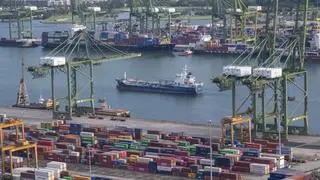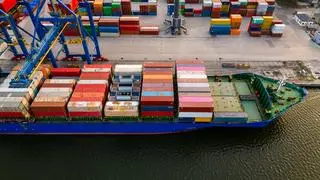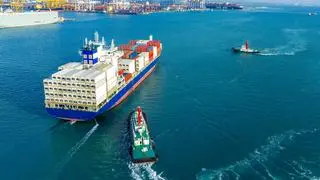India’s exim trade has been hit by surging freight rates, worsening congestion at transhipment ports, and shortage of empty containers.
Sources in the shipping sector said the global port congestion has reached a 18-month high with long lines of ships waiting for berths in transhipment ports, hindering timely deliveries.
Mahadevan Pavithran, Managing Director of Travancore Cocotuft, said the freight increase has affected coir exports as May to August is the peak season to meet Christmas demand in the US. The Kochi-Houston rate has increased from $2,400 to $7,600. “We are getting good export orders. But the soaring freight rates and container shortage are a problem. Compounding the difficulties is the doubling of raw material costs,” he said.
Dipak Shah, chairman, South India Tea Exporters Association, said buyers are not ready to accept ‘freight to pay rate’ instead of ’freight paid’. “Freight is a major component in exports and its increase on a daily basis is affecting all. Right now, there is no solution in sight,” he said.
According to Jeyaraj Easwaran, Tirupur Exporters Association, the sector cannot afford such fluctuations as it works on committed volume. This is peak season, with order commitments ahead of Christmas. However, lack of information from lines on expected time of arrival is impacting the trade badly, he said.
Costly diversion
Prakash Iyer, Chairman of Cochin Port Users Forum, said shipping rates were significantly down after Covid. But the Red Sea crisis and the diversion of ships via Cape of Good Hope has led to congestion, forcing lines to impose a rate hike. Currently, the rate to the US West Coast has jumped three-fold to $8,000. The frequency of direct sailing in the Kochi-Europe sector has also reduced to fortnightly from weekly.
Seeking urgent intervention from the Centre, Iyer suggested providing security to passing ships all along the Red Sea from Houthis attack, similar to the action against Somalian pirates.
Emmanuel Nambusseril of All India Spices Exporters Forum said the cancellation of bookings by shipping lines, especially to US ports, has affected spices exports. This has increased transit time to New York from 30-35 days to 50-60 days, causing major disruption in the supply chain and, in turn, delayed payments .
Seafood export orders are also getting cancelled in the absence of timely delivery in the US markets, with Ecuador benefiting from the disruption to meet the demand for marine products, adds Alex K Ninan of Seafood Exporters Association of India.









Comments
Comments have to be in English, and in full sentences. They cannot be abusive or personal. Please abide by our community guidelines for posting your comments.
We have migrated to a new commenting platform. If you are already a registered user of TheHindu Businessline and logged in, you may continue to engage with our articles. If you do not have an account please register and login to post comments. Users can access their older comments by logging into their accounts on Vuukle.